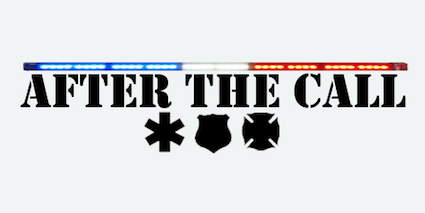Lt. Col. Dave Grossman wrote on the psychological effects killing had on soldiers. He
has spent an entire 300 plus pages dissecting with precision the reasons that soldiers did
not kill; the difference between killing at close range versus killing at a distance; the impact of each of the scenarios on the soldier’s psyche; and the ways to mitigate psychological stress on the solider following war.
There were several interesting overlaps between the experience of the solider and the
experience of the first responder.
Of interest, was Grossman’s (who is also a psychologist) explanation between distance of
the soldier and the intensity of trauma as a result. What Grossman found was that distance, both physically and psychologically, made a huge difference between whether a solider would shoot to kill, as well as whether they would be traumatized by the killing.
Grossman went on to explore the various implementations that have gone into making the
soldier more detached, such as through adding mechanical means (scopes, night vision,thermal) as well as training differences.
As a first responder, our physical distance is very intimate. Police, Ems, and Fire all
grapple with people in a very intimate and vulnerable way. Though performing CPR may
be a “firefighter’s job” (as one paramedic friend once told me), it never did get easier for
me. There was something intimate about the process that makes one uncomfortable. Indeed, it also increases the feeling (at least for me) of some responsibility for this person. Were my compressions deep enough? Were they fast enough? Did the chest rise on the last two breaths? I’d pay particularly close attention to the EKG to measure compressions and keep a keen eye locked on whatever paramedic seemed to be closest.
As EMS is clearly tied into the above role, their role is obviously more involved. As well, the medical responsibility of their role ensures the necessity to cross this barrier into personal space. And police grapple with humans at their most violent and in their upmost crisis. They are much more likely to be the targets of violence and yet are still required to enter these private, close quarter spaces.
To illustrate these space-to-space dimensions that I mean, next time you are in line for a
coffee, pay attention to whether someone is standing too close to you. How close is “too close?” Where does your space begin? Or, if you’re brave, begin to invade on the person’s space in front of you. Do they shuffle forward? Do they say something? How many times have you pulled up behind someone in your car, only for them to inch forward just a bit?
After a lifetime of military services, Grossman was showing the resistance to killing on a continuum. But, much of what he discussed seemed quite parallel to the impact of this “issue of proximity” to the role of the first responder and the ensuing trauma or stress following a call. The DSM, the criteria for PTSD require the majority of events to have happened close to, or directly to the person (though they leave room, appropriately, for vicarious trauma). Proximity plays a key role.
This may seem obvious at first glance. Of course, the trauma statistics are much higher due to the exposure rates and the intensity of these exposures for the first responder. But, often it is believed that simply being a first responder is cause of a stress disorder. It is not simply the fact that if one is a Firefighter that they will succumb to a disorder. The stress comes from the fact that we lay actual hands upon the dying heart, pumping at a fast rate to trying to literally squeeze life back into a complete stranger. That connection can lead to emotional reactions that one neither plans nor wishes for. Of course, this is not Fire specific. The gravity of this role does not easily slide from the hands of paramedics or police either.
All of these recollections are fine, but what do we do with them. Perhaps another lesson can be learned from Grossman, who identified that one of the most beneficial processes was a “ritual cleansing”. These came in a lot of different forms, from parades to mandatory down time. Ultimately, the soldiers returning from war were receiving validation for what they did and saw.
To make this relative, Grossman identified that the vets from Vietnam did not have these ritualistic returns to civilian life; in fact, they were ostracized, belittled, and in some instances even assaulted. Grossman reflected that it was the vets from Vietnam that had the most psychological injuries (although, he conceded, that even more likely buried their problems and never came forward).
One potential ritual that departments can use is the informal “round table”. This is not structured like a diffusing or debriefing, however it allows the crew to talk about what happened and to gain support from their crewmates. Who ever leads these groups needs to ensure that blame and judgment never make it into these rituals. Lessons learned can come at a later date (especially if this call was a higher stress call). Create that safe place for reflection and validation. Let’s face it, not every call ends with a survivor. But, if a few people are starting to carry a bit of that weight, we owe it to them to remind them that they are not god. They can’t always save or bring someone back.
Creating your own rituals, whatever they may be, could be a great way to instill resilience
into your crew. As they grow to understand that following a call what ever they have decided comes next. Perhaps it’s a return to the hall, round table, and then washing of gear and placing it back in service. Whatever your ritual becomes make sure that it is acceptable by most and helps to validate and consolidate the experiences the crew just had.
